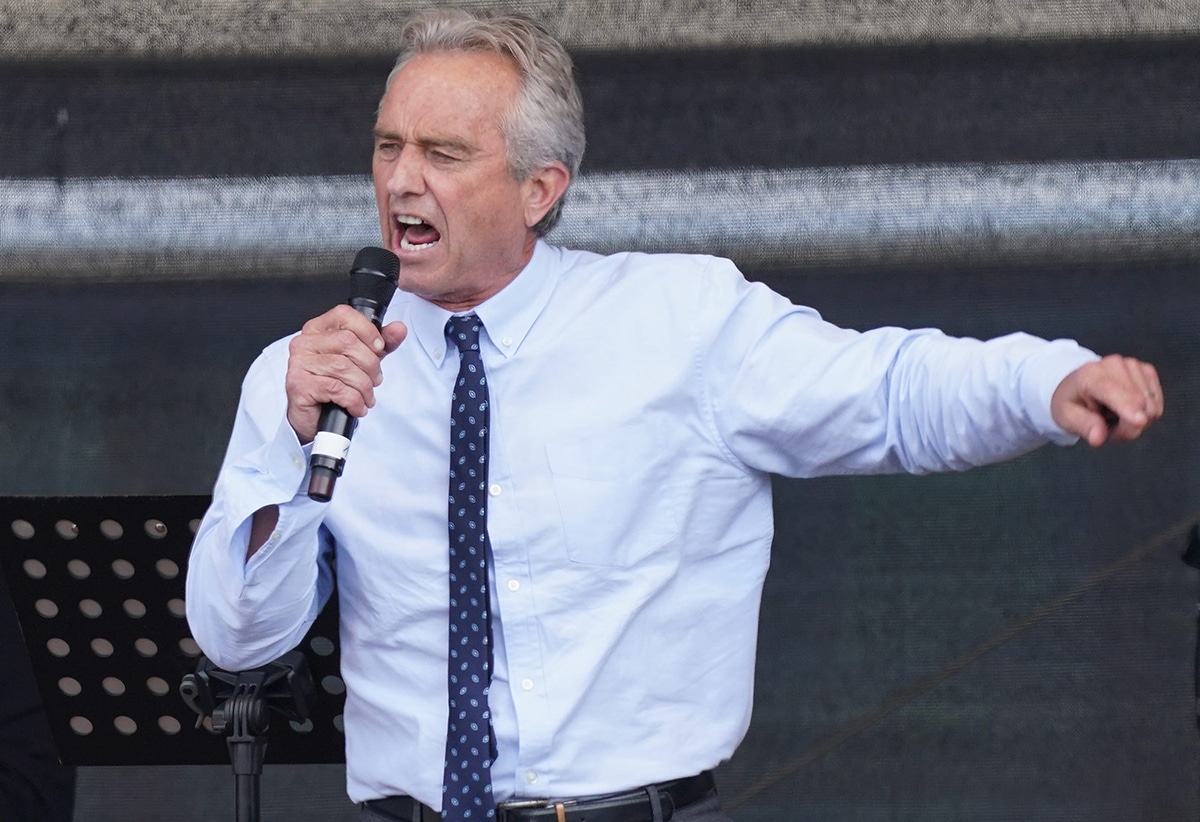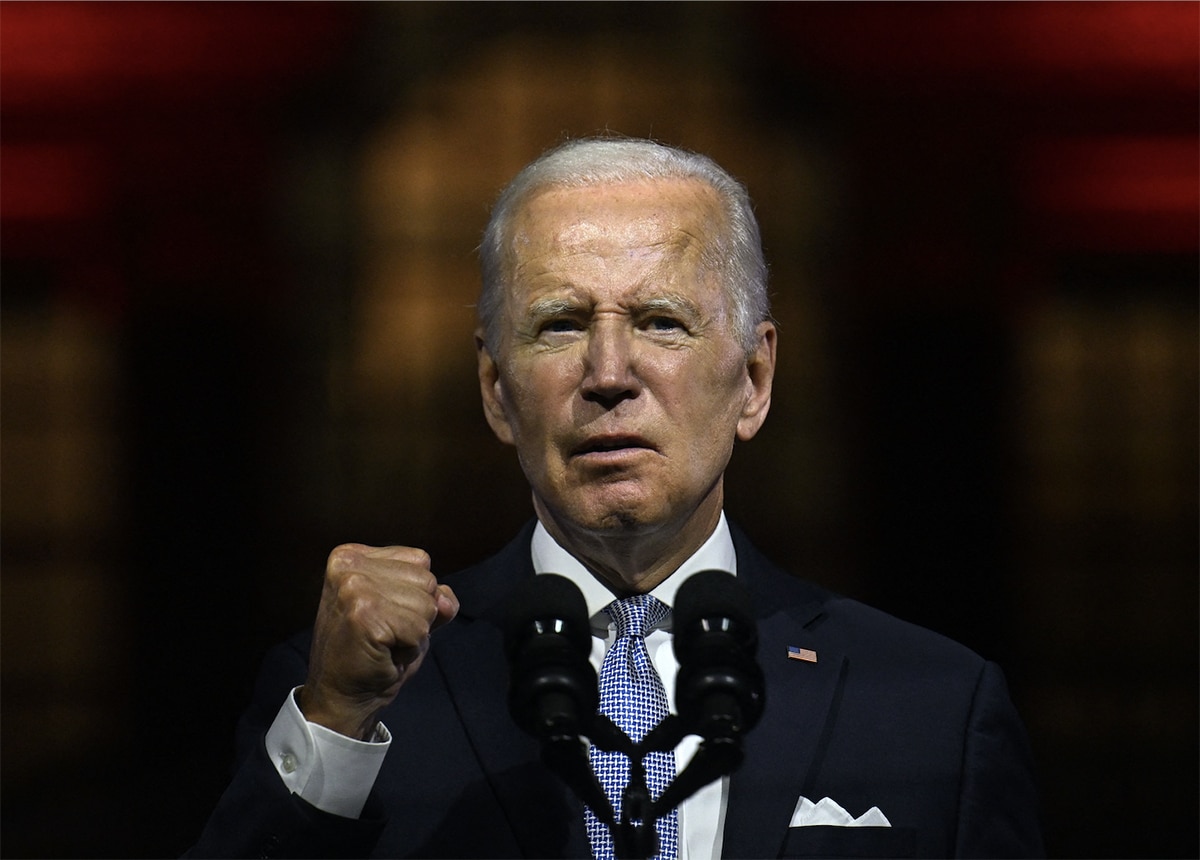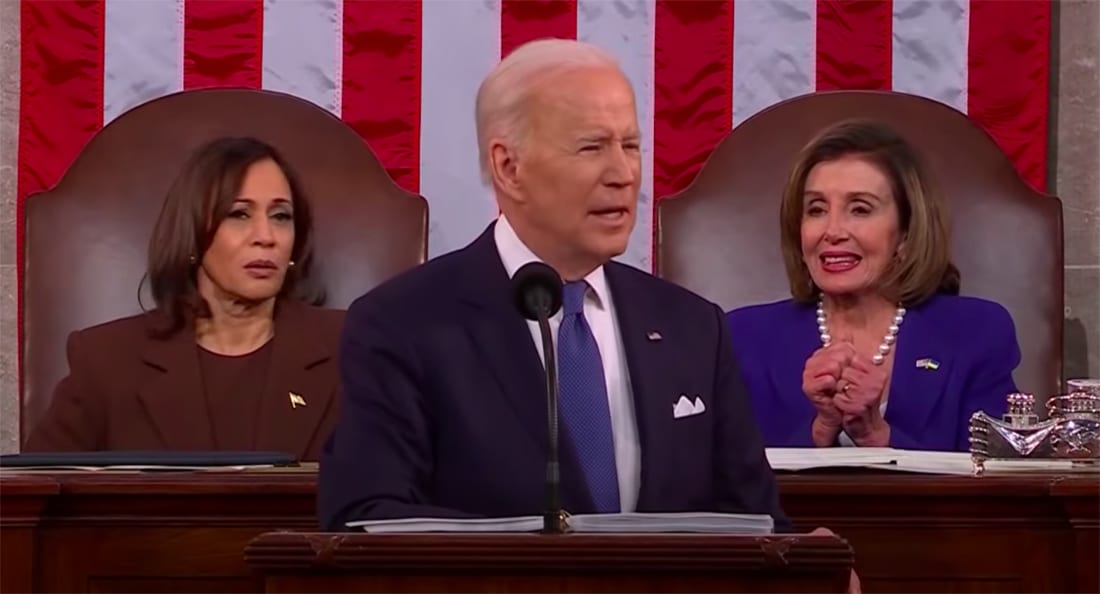

If You’re Not With Us, You’re MAGA
by Matt Taibbi | Jun 29, 2023
Robert F. Kennedy, Jr. had a town hall last night. In it, he was asked about Donald Trump, and said he was “proud that President Trump likes me.” Guess what all of the headlines are about this morning.
It’s been going on for so long that it’s hard not to laugh at this point, but the campaign press’s latest effort at expanding the definition of a “Deplorable” is coming hard and fast via coverage of the RFK, Jr. campaign. “If you’re not with us, you’re MAGA” has been a central propaganda concept for years, and they’re really hammering it with this candidate.
Nowhere was this more plain than in a recent Atlantic slam job on RFK Jr., titled “The First MAGA Democrat.” Written by John Hendrickson, my former online editor at Rolling Stone, it’s a litany of all things objectionable, offensive or troubling ever said or done by RFK, Jr., minus any explanation of why large numbers of people who know all of this might be pissed enough to vote for him anyway. This felt like the money paragraph:
His most ominous message is also his simplest: He feels his country is being taken away from him. It’s a familiar theme, similar to former President Donald Trump’s. But whereas Trump relies heavily on white identity politics, Kennedy is spinning up a more diverse web of supporters: anti-vaxxers, anti-government individuals, Silicon Valley magnates, “freethinking” celebrities, libertarians, Trump-weary Republicans, and Democrats who believe Biden is too old and feeble for a second term.
That’s a long list. I tripped up on “anti-government individual.” Who is that? I’ve met 2nd Amendment activists planning for final showdowns in their driveway, and Julian Assange supporters who dislike governments for other reasons, but I’m not sure I’ve ever encountered “anti-government individual” as a generic category. John went on to explain the pathology of the Kennedy supporter:
[Kennedy] is tapping into something burrowed deep in the national psyche. Large numbers of Americans don’t merely scoff at experts and institutions; they loathe them. Falling down conspiratorial internet rabbit holes has become an entirely normal pastime. Study after study confirms a very real “epidemic of loneliness.” Scores of people are bored and depressed and searching for narratives to help explain their anxiety and isolation. Scroll through social media and count how many times you see the phrase Burn it down.
We’re now into about the 5,000th iteration of a phenomenon that’s dominated campaign journalism since 2016. A candidate who previously would have been dismissed as fringe shows well in polls. Hit pieces are rushed out the door, pathologizing both candidate and supporters as loons. Voters respond to seeing themselves described as deplorable or irredeemable by hardening their support for the protest candidate. Editors double down on hit pieces.
This approach got Trump elected in 2016. In the 2020 cycle it first infuriated/alienated a lot of Bernie Sanders voters, then nearly re-elected Trump. Now in the 2024 cycle, reporters are again hunting the pathological, incorrigible voters, this time within Democratic Party ranks, and again they’re trying to cast them out like evil spirits, instead of making any real effort to understand where they’re coming from. They seem determined to push the line that distrusts institutional authority = MAGA to the point where national media will soon see the world as one DC dinner party hosted by Anne Applebaum, surrounded by a sea of fevered Trump supporters. If they’re not careful, they will create that reality.
John is a nice guy, and he’s right that a fast-growing number of Americans loathe “experts and institutions.” However, he does what all campaign reporters seem to have done on purpose since 2015, missing the part where voters have a million good reasons to feel that loathing.
Long before there was “MAGA” or a Trump campaign, the legitimate and absolutely logical mass rage that drove it existed, all over the world. Without mentioning Trump, Martin Gurri’s 2014 Revolt of the Public nailed what was coming: voters were rapidly losing faith in “traditional hierarchies,” and ready to rebel against the idea that “legitimacy can only be bestowed from above.” This was beginning to happen all over the world before Trump. It’s why Beppe Grillo, a comedian named after a character in Pinocchio, got eight million votes in the 2011 elections in Italy. As Gurri noted, Grillo’s support wasn’t about reform so much as “humiliation and demoralization of the established order.”
In the U.S. people were mad about the export of the manufacturing economy, they were mad about “forever wars,” and even if they didn’t fully understand the causes, they were furious about the massive upward wealth transfers effected by eight years of bailouts and “liquidity injections.”
All a candidate like Trump had to do was pick up on this vibe and rip NAFTA, NATO, the Fed, etc., and cash in when establishment media reacted like their dog had been shot and the criticisms were insane and illegitimate. Was Trump a real reformer? Were there lots of aspects to his candidacy that might have been disqualifying? I sure thought so.
But from the first time I saw him on the stump it was obvious the things he was saying — from “The Iraq war was a big f… fat mistake, okay?” to the idea that the Fed had created a “false economy” — would resonate with voters, and for good reason. It was just as clear the constant efforts by establishment papers like the New York Times to defend the dignity of institutions like the Fed against Trump’s attacks would work in his favor.
It should be crystal clear now, after at least eight years of this, that the failure of officialdom to recognize legitimate popular grievances on a huge range of topics is what’s driven voters to candidates like Trump, Sanders, and now Kennedy, Jr., Marianne Williamson, and even Cornel West, who’s already polled at 6% nationally.
However, instead of being honest, prestige media is keeping up that uniquely destructive combination of ignoring the rational reasons for discontent and denouncing the electorate’s political choices as crazy, dangerous, conspiratorial, or worse.
NBC’s Brandy Zadrozny hit the same theme in her humorously vicious RFK, Jr. profile, which among other things compared Kennedy’s interactions with his dogs to the spread of conspiracy theories. As with The Atlantic, her idea is that RFK, Jr. is no Democrat, but an extension of the Trump movement:
Kennedy’s views on vaccines put him at odds with most Americans, particularly Democrats. He aligns more with a growing wing of vaccine-skeptic Republicans; research and polling consistently shows modern-day conservatives are more susceptible to conspiracy theories and hold more conspiratorial worldviews generally.
Is that true? RFK, Jr. certainly got himself in trouble when he said, “Even in Hitler’s Germany, you could cross the Alps to Switzerland. You could hide in an attic like Anne Frank… Today the mechanisms are being put in place so none of us can run and none of us can hide.”
It’s obviously fair to ask tough questions about a remark like that — it’d probably be malpractice if an outlet like NBC or The Atlantic didn’t mention it. Kennedy, Jr. apologized, but still, as a politician, you have to expect that comparing the situation of a vaccine-avoidant modern American to Anne Frank is not going to go over well.
Still, John in the Atlantic described that episode by saying, “Last year, at an anti-vaccine rally in Washington, D.C., Kennedy suggested…”
It was actually a “Defeat the Mandates” rally. It may very well be fair to characterize RFK, Jr. as anti-vaccine, but I’m pretty staunchly pro-vaccine and it drives me crazy every time I see press people conflating opposition to mandates with opposition to vaccines. It happened repeatedly with the Canadian trucker protests, and we saw Stanford’s “Virality Project” do the same thing in the Twitter Files.
So, start with that: RFK, Jr. may be attractive to people who were accused of being anti-vaxxers for being against mandates, or opposing school closures, or for sharing a true news story about vaccine side effects. He’s also probably getting support from people who felt lied to about the efficacy of the vaccine by people like Joe Biden (“You’re not going to get COVID if you have these vaccinations”) and Anthony Fauci (“If you get vaccinated, you are protected”), or among people who were told they were crazy for thinking the virus could have come from a lab, or were removed from the Internet for expressing the wrong opinion about vaccine policy or who knows what else.
Are these “conspiratorial” complaints? I don’t think so. I also doubt it’s particularly “MAGA” to recoil at the idea that Joe Biden is the only 2024 presidential candidate who won’t be/hasn’t been censored on the Internet (LinkedIn even locked out Vivek Ramaswamy over ridiculously anodyne comments). Candidates like RFK, Jr. or even Ramaswarmy are going to get votes just because they’ve been censored and a lot of people don’t like censorship. Who doesn’t see that?
Then there’s the other common complaint about RFK, Jr., leveled by people like Mehdi Hasan, that he does too many “right-wing” podcasts. Is that accurate? Or is it more accurate to say he’s basically blackballed from center-left media and like a long list of other exiled former Democrats is doing interviews on the only media platforms where he’s welcome? I was shocked to read the New York Times criticize him for engaging in a “friendly back and forth” with “Tulsi Gabbard, the former Democratic congresswoman turned right-wing commentator.”
Did the Times forget the part where Tulsi was driven out of the Democratic Party by a libelous smear campaign in which NBC News and Hillary Clinton teamed up to accuse her of being a “Russian asset”? Did they miss the Daily Beast expose about how Tulsi was being “Boosted by Putin Apologists” that cited three publicly listed donors: the late, much-respected Princeton professor Stephen Cohen, the activist Sharon Tennison was was said to have brought AA to Russia, and someone called “Goofy Grapes,” who may or may not have once worked for Russia Today comedian Lee Camp?
Instead of meekly taking this crap the way Bernie Sanders did, Tulsi fought back, sued, called Hillary Clinton a warmongering creep, and was booted out of Democratic circles and described as “right wing” in the New York Times for her troubles. Now, by extension, RFK, Jr. is labeled “right-wing” for being friendly to her. Who wouldn’t find all of this enraging?
Hillary Clinton kicked off the “deplorable” era in 2016 by saying “half” of Trump voters were “irredeemable” and “racist, sexist, homophobic, xenophobic and Islamophobic.” The quote at first was seen as a political unforced error, it being unwise normally to insult so many potential voters. Since then the “half” has been removed, the idea that it was a mistake has been rethought, and now, a person can have the honor of joining the MAGA ranks for offenses ranging from not believing Russiagate to opposing mandates or Internet censorship. Are we all deplorable now?





0 Comments